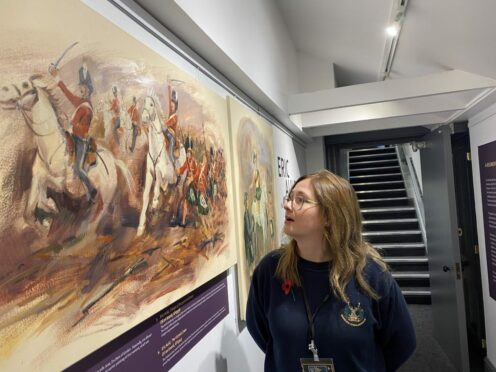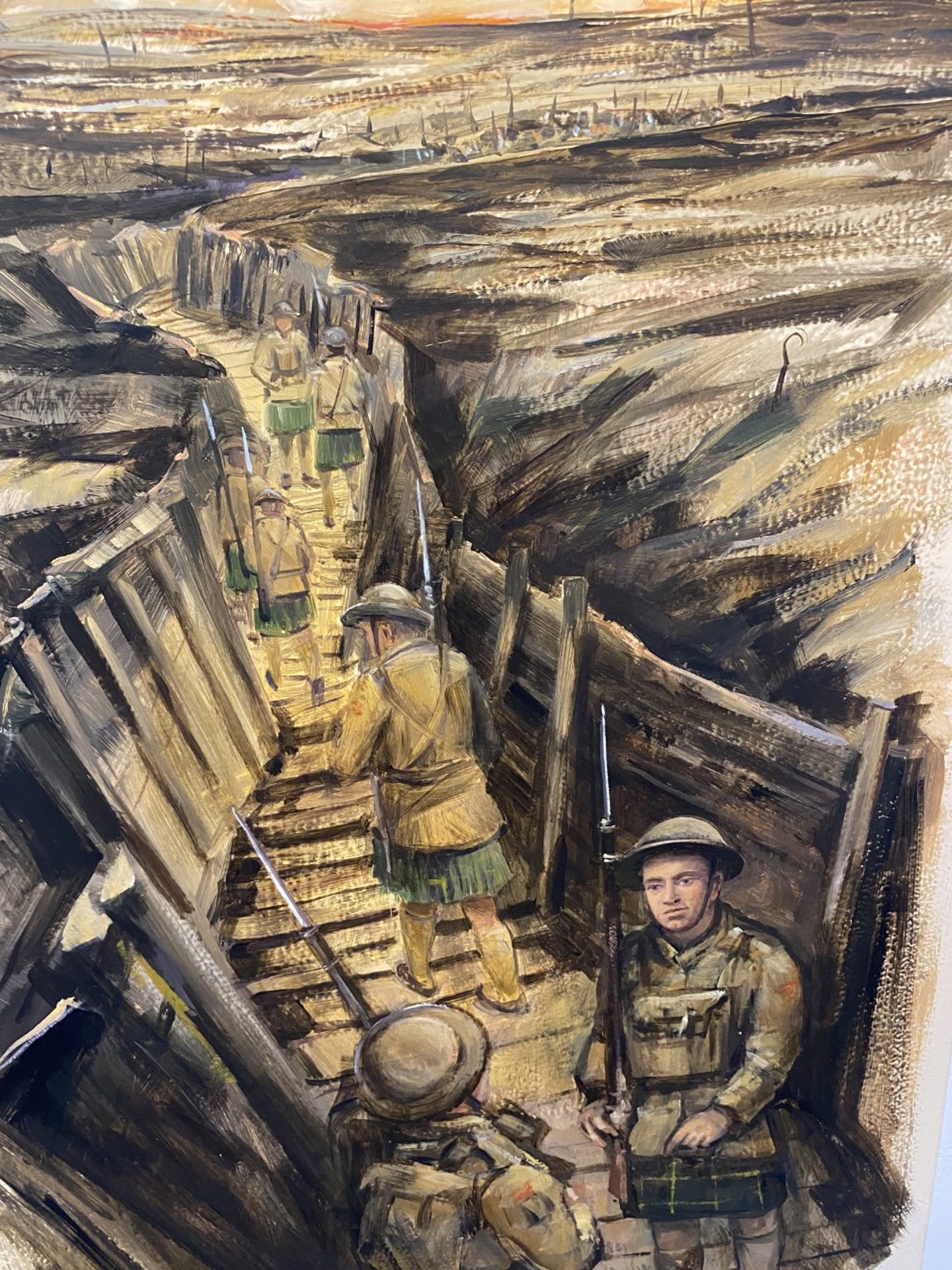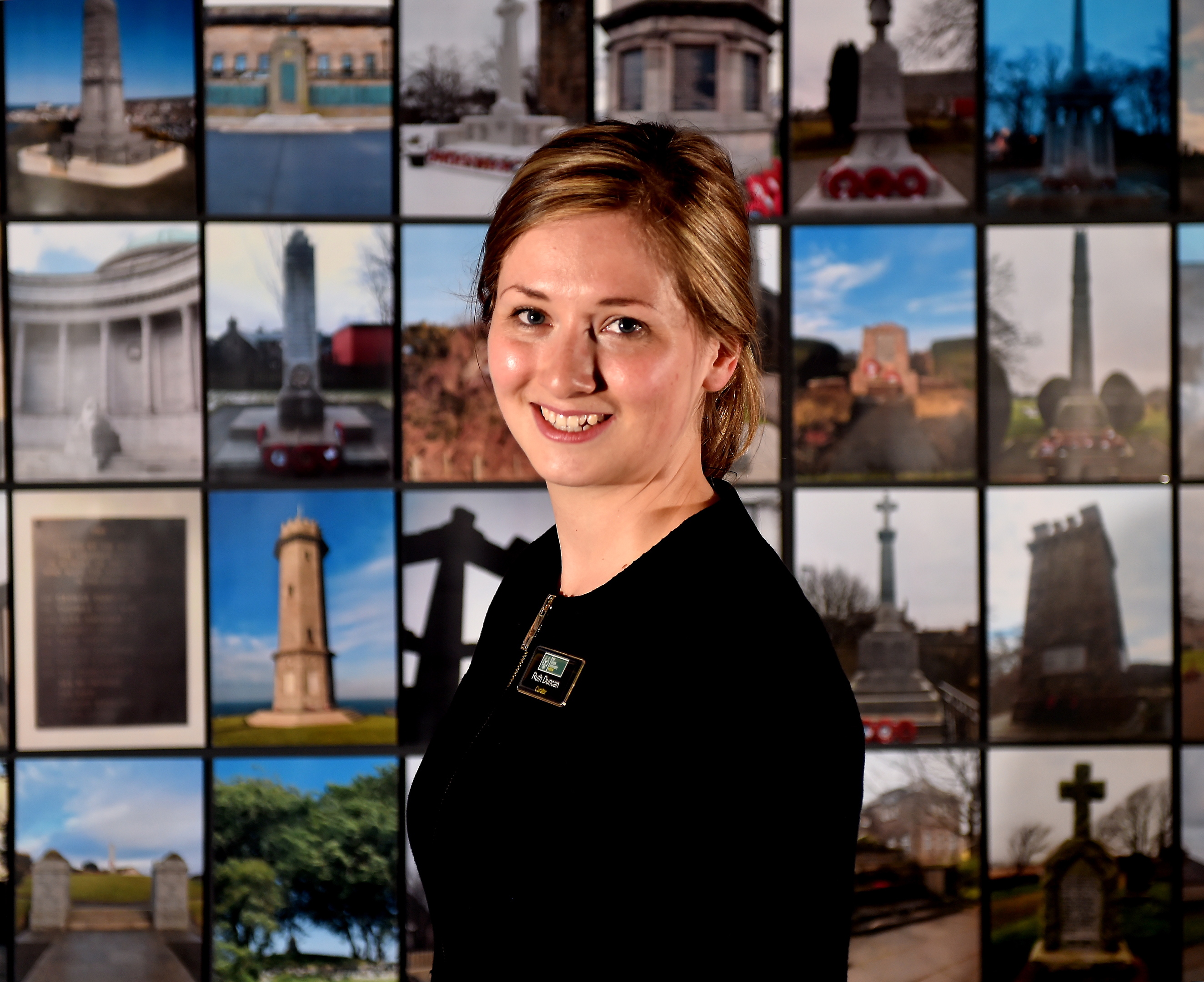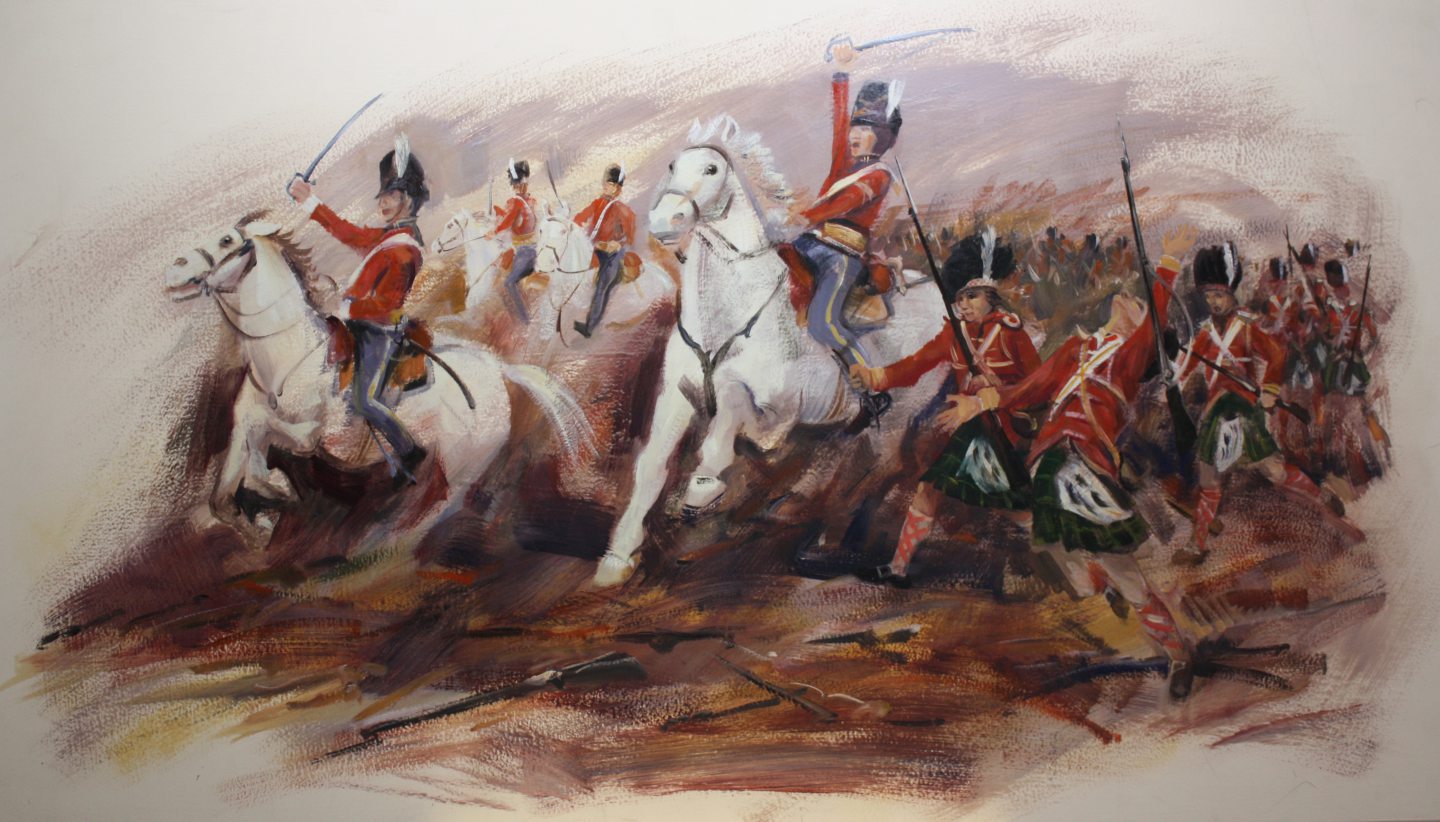It has been a labour of love for Ruth Cox in her role as curator at the Gordon Highlanders Museum in Aberdeen.
She and her colleagues had been hoping to unveil an exhibition of Eric Auld’s striking works back in March 2020, or at least before the arrival of the Covid pandemic.
But now, finally, Granite City audiences are being offered the opportunity to appreciate his evocative paintings which include one of his father in a trench during the First World War and which convey the regiment’s long and exalted history.
And Ruth is hoping Aberdonians will visit the museum to pay homage to one of the north-east’s most renowned cultural figures on this weekend of remembrance.
The artist brought a bold flourish to conveying the different emotions of conflict. But he himself was especially proud of his father, Alexander, a painter and decorator who volunteered for the Gordon Highlanders and was wounded at Ypres in 1917.
Together with Donald Buyers, Bill Baxter and Bill Ord, the Boddam-born Auld made up the group known as ABBO – an acronym derived from the letters of their surnames – who joined forces to promote their work in the region which they all loved.
They held 14 exhibitions and were critically acclaimed. But with little funding, full-time teaching jobs and families to support, they went their separate ways after a decade.
Mr Auld became the most commercially successful, reproducing hundreds of his most popular works. But his favourite commission was a request to capture the history of the Gordon Highlanders for the regimental museum.
The collection has never been assembled in its entirety since the opening of the museum more than 20 years ago. Yet now, the public will have the chance to enjoy both his paintings and some work by his father, who was himself a talented artist.
Eric was a prolific artist in his life
Ruth explained how Alexander was in the Gordon Highlanders during the First World War and served as a private in one of the Territorial Battalions.
He was badly wounded in his right arm at the end of June at Ypres after sustaining a gunshot wound to his right elbow, a fractured forearm and a dislocated shoulder on his right hand side.
He was sent back to Britain to recuperate, but his wounds were too substantial for him to stay in the Army and he was discharged as physically unfit in September 1918.
However, he made a full recovery and, once back in his own community, did his best to ensure the family’s artistic talent was given free rein to flourish.
Ruth said: “His son was born in 1931 and Alexander encouraged him to pursue an interest in art. There was a strong bond between them and I’m sure that the public will enjoy viewing these works when they are brought together.”
The exhibition continues until December 17.
Further information is available at gordonhighlanders.com




Conversation